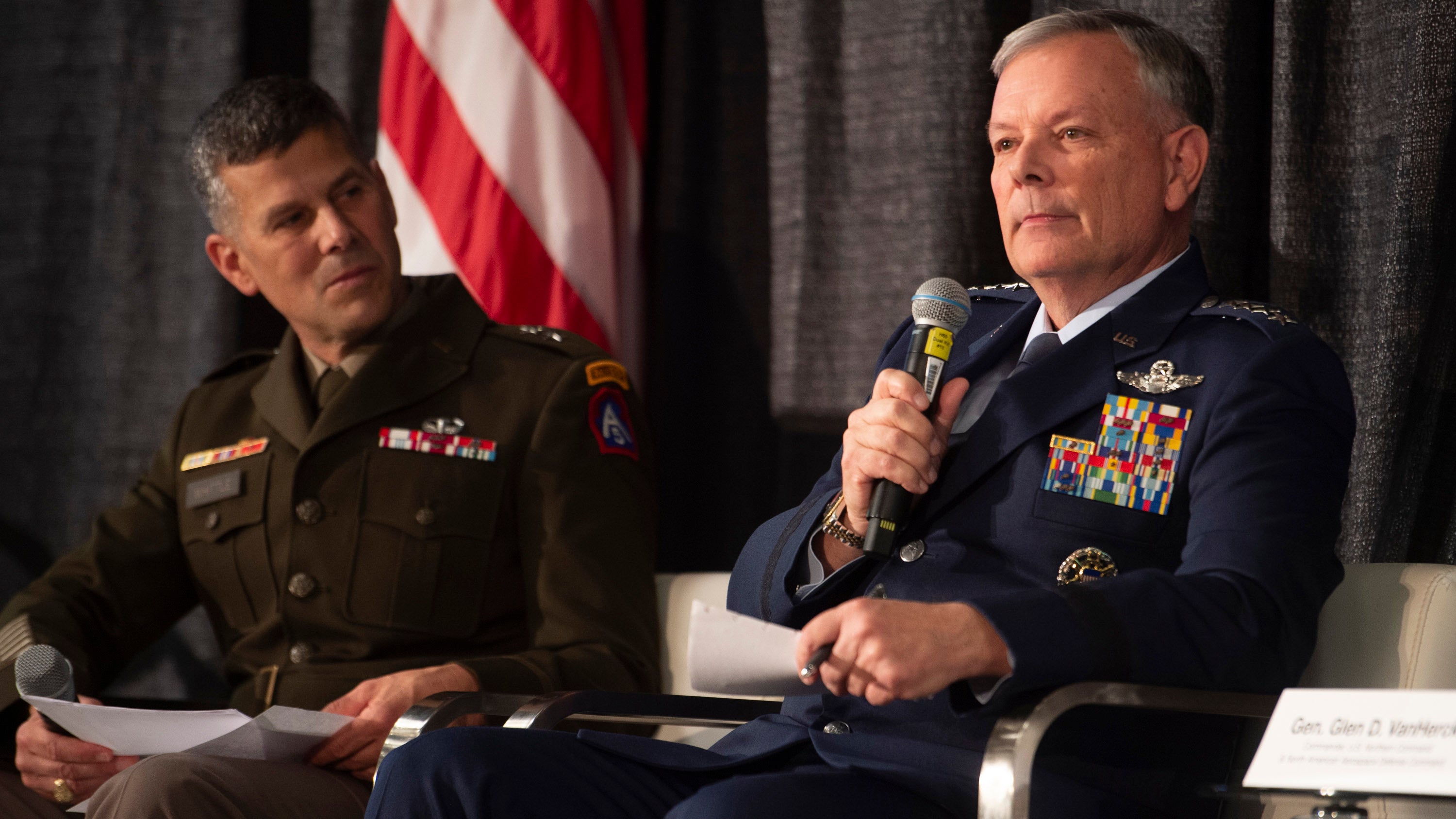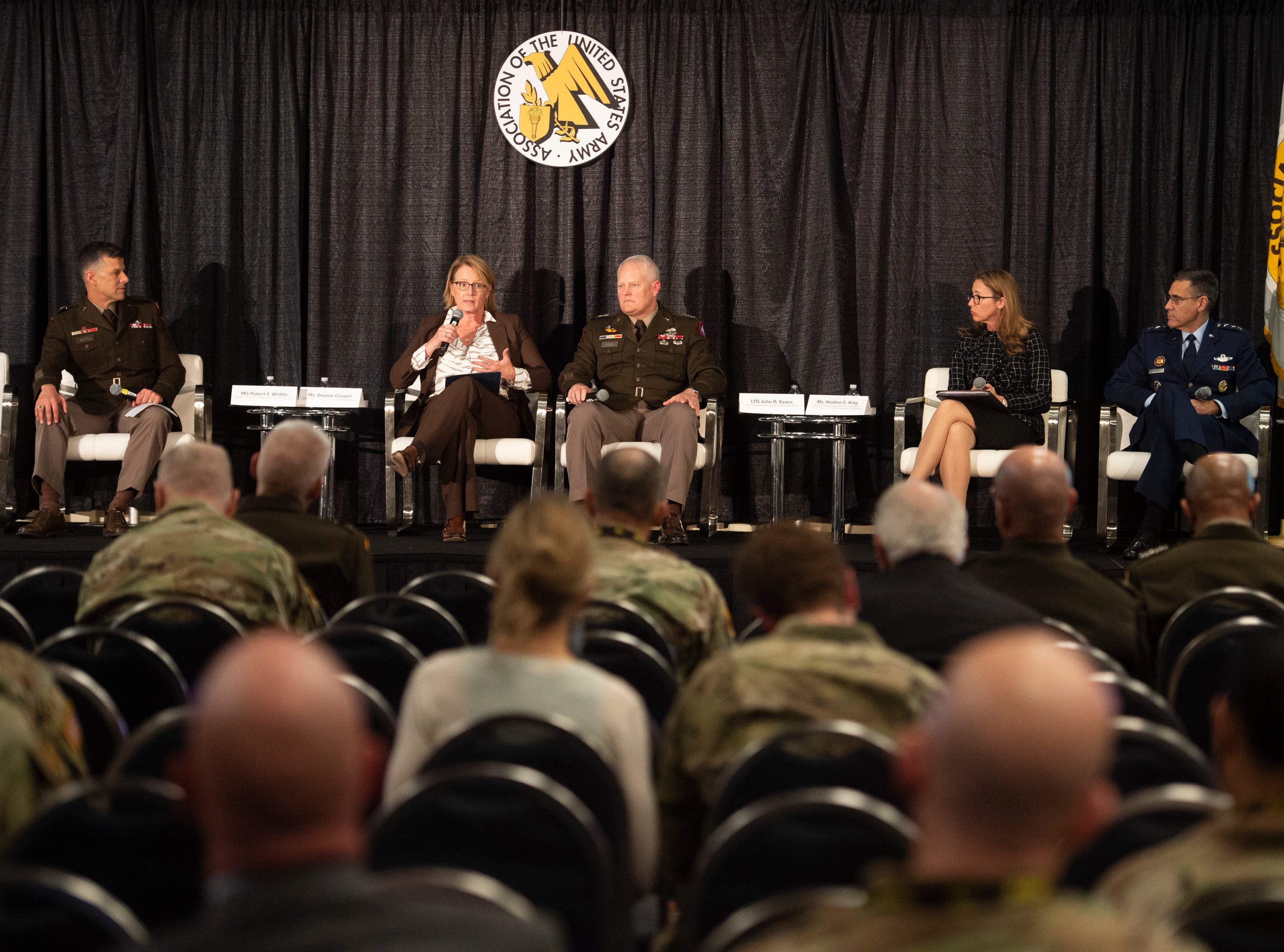Army Leading on Homeland Defense, 4-Star Says
Army Leading on Homeland Defense, 4-Star Says

When it comes to supporting homeland defense, the Army is leading the charge through integrated deterrence, the commander of U.S. Northern Command said Oct. 11.
“The Army has just knocked it out of the park when it comes to my role as the commander of U.S. Northern Command for the last almost 26 months,” Air Force Gen. Glen VanHerck said during a homeland defense seminar at the Association of the U.S. Army’s 2022 Annual Meeting and Exposition. “The Army shows up every time we need support, whether that be through COVID, whether that be through [Operation] Allies Welcome, whether that be through hurricane response. … I just get what we need to accomplish the mission.”
The Defense Department identified integrated deterrence as a means to “build enduring advantages” against emerging global threats. Integrated deterrence involves “developing and combining … strengths … by working seamlessly across warfighting domains, theaters [and] the spectrum of conflict,” according to the 2022 National Defense Strategy fact sheet.
The Army faces threats that go beyond conventional physical attacks. The U.S. is already at war with global competitors in the information, space and cyber realms. “We’re under attack, folks,” VanHerck said during the seminar titled “Integrated Deterrence through Resilience–Whole-of-Government Response to Hazards and Threats.”
“Our competitors … are trying to undermine and erode our democracy on a daily basis,” he said.
Despite these emerging threats, the Army stands ready to respond, the commanding general of U.S. Army North said.
“Now what we see is threats, competitors, potential adversaries external to the homeland that we know we will have to project power to and assure power projection in order to set the stage for decisive combat operations at a time and place of our choosing,” Lt. Gen. John Evans said. “Because if we cannot deter the enemy from attack, which is our first option, we’ve got to be able to respond decisively.”
As emerging threats to the homeland continue to change, so must the military’s response.
“Because our threats are changing, because our threats are emerging and evolving, we have to be adaptive. We have to adjust the way that we are approaching things,” said Deanne Criswell, administrator of the Federal Emergency Management Agency.
In the future, the U.S. will need to hold space for “uncomfortable” conversations about an attack on the homeland in order to address homeland defense, Evans said.
“It is not politically popular to suggest to the American people they may not be safe in their homes or in their country, but we’ve got to start there,” he said. “We have to have real discussions about what the risks are here.”
— Karli Goldenberg


